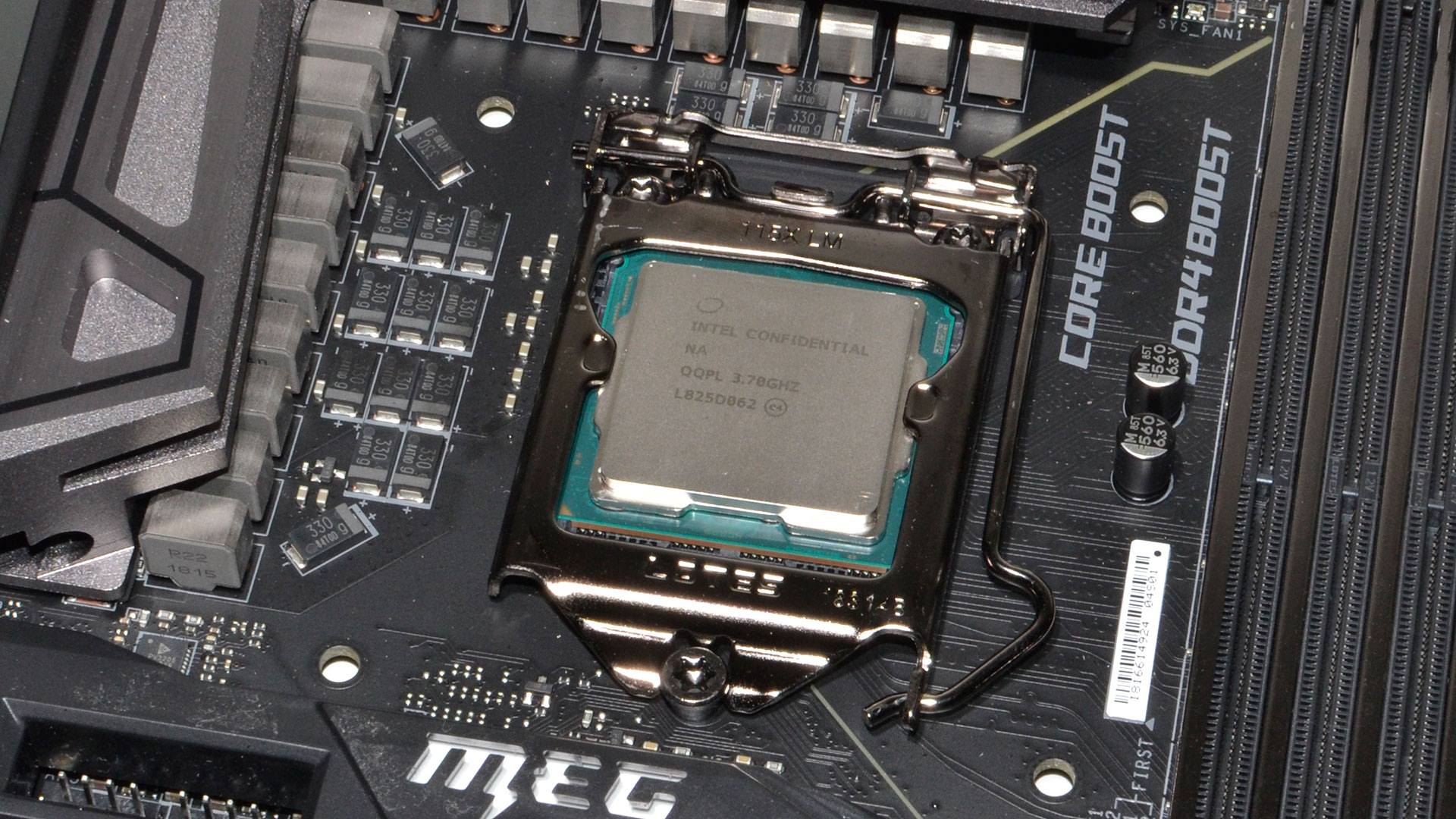Intel challenges AMD, says ‘come beat us in real-world gaming’
Let the smack talk begin.

Later today, AMD will host its "Next Horizon Gaming" event at E3 where it will divulge details about upcoming gaming products (most likely Navi), after having already launched several third-generation Ryzen processors two weeks ago at Computex. AMD is likely to flesh out its Ryzen 3000 series lineup with additional SKUs as time goes on. As far as Intel is concerned, however, its own Core processors are the superior CPUs for gaming.
That remains to be seen, until we (and others) have had a chance to properly benchmark AMD's new processors and compare results with Intel's silicon. What's interesting, though, is that AMD has demonstrated Ryzen beating Intel in certain benchmarks, such as Cinebench and Blender—a 12-core/24-thread Ryzen 9 3900X was shown outperforming a Core i9-9920X, also with 12 cores and 24 threads, by around 18 percent.
What does Intel have to say about this? Quite a bit, actually. According to PCPerspective, Intel provided press materials at E3 showing that Cinema4D (which the Cinebench benchmark is based on) is used by just 0.54 percent of consumers, even though it's included in 8 out of 10 reviews.
As it pertains to gaming performance, Intel issued an indirect challenge to AMD to "beat us in real-world gaming" if it wants to claim the performance crown.
"So you’re going to hear a lot about gaming CPUs this week. They may or may not come from certain three letter acronyms. That said, here’s what I want to challenge you. I want to challenge you to challenge them. If they want this crown come beat us in real world gaming, real world gaming should be the defining criteria that we use to assess the world’s best gaming CPU," Jon Carvill, Intel's VP of marketing, told PCGamesN. "I challenge you to challenge anyone that wants to compete for this crown to come meet us in real world gaming. That’s the measure that we’re going to stand by."
What a difference a couple of decades can make. In the mid-1990s, AMD started using a 'Performance Rating' (PR) for its processor model names to better represent actual performance, rather than clockspeed alone. In doing so, a casual user might have assumed at the time that an Athlon XP 1800+ runs at 1.8GHz, instead of its actual 1.53GHz clockspeed.
Fast forward to today and now it's Intel that is touting real-world performance. It's a different situation, but Intel's message is that more cores and threads does not necessarily mean better performance—architecture matters. Check out this tweet from a couple of weeks ago:
The biggest gaming news, reviews and hardware deals
Keep up to date with the most important stories and the best deals, as picked by the PC Gamer team.
Not all cores are created equal, and more cores doesn't always equate to better overall performance. With an ideal mix of CPU cores, I/O and memory channels, Intel Xeon processors deliver unmatched workload performance. pic.twitter.com/7LFG9gEgg9May 27, 2019
And this one:
Real workloads in real environments. We test processors differently because our customers’ needs are unique, not synthetic. #Computexhttps://t.co/mowSpMZ63U pic.twitter.com/wYhhsB0JN6May 26, 2019
And also this one:
Performance used to be defined by cores, clock speeds and cache sizes. Today in the real world it’s defined by architecture, workload and implementation. #Computex https://t.co/H62tfxk0gL pic.twitter.com/bqMoJHFNqrMay 26, 2019
Intel also published a blog post on the subject, with a section on gaming, as that last tweet links to, and of course the performance crown challenge, all within the past couple of weeks.
Come July, we'll be able to put Intel's and AMD's claims to the test. That's when AMD's new CPUs will be available, along with its new X570 chipset with PCIe 4.0 support. Until then, stay tuned for AMD's Next Horizon Gaming event in a few hours, and the official launch and reviews in the coming weeks.
Paul has been playing PC games and raking his knuckles on computer hardware since the Commodore 64. He does not have any tattoos, but thinks it would be cool to get one that reads LOAD"*",8,1. In his off time, he rides motorcycles and wrestles alligators (only one of those is true).


